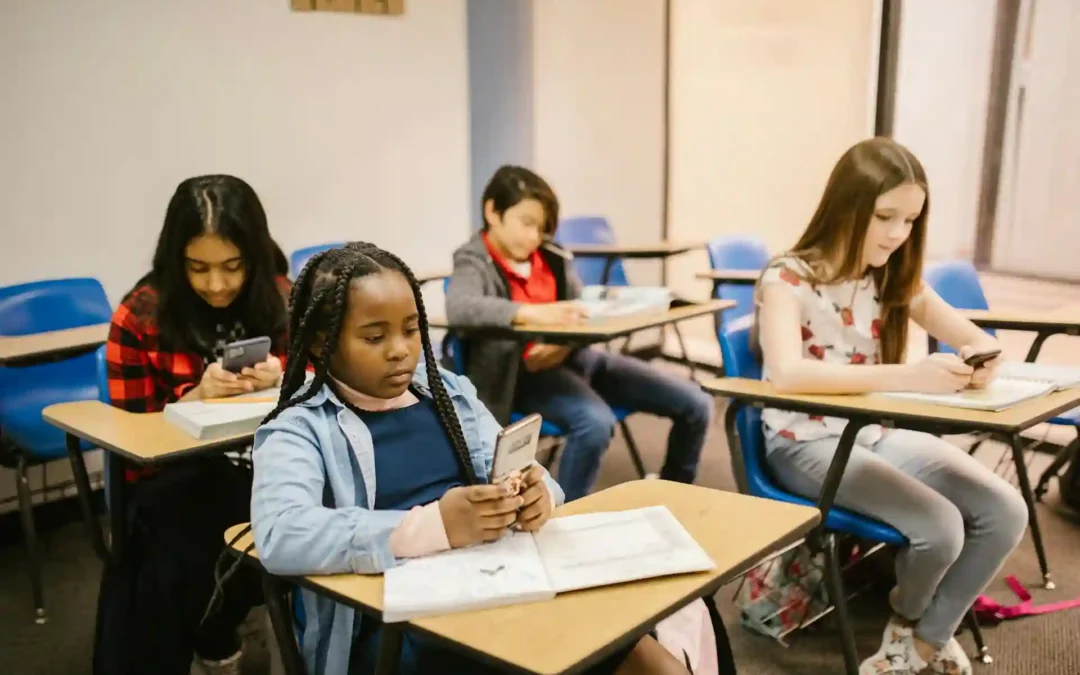The impact of technologies on the mental health of students in this digitally-advanced era has turned out to be the most pressing issue. With more and more technology being adopted in the education sector, it is imperative to evaluate the possible implications of this for our teenager’s mental well-being.
Table of Contents
The Rise of Online School ERP Systems
A crucial technology field in education is the web application of online school ERP systems (Enterprise Resource Planning). Such robust software solutions are built to automate admin activities, facilitate communication, and are focused on improving the entire school management process.
Those systems have their merits: they help with the storing of data, build the bridge between the parents, teachers, and students, and most importantly simplify resource management. Although this can be a good experience, their mental health can be greatly impacted.
The Advantages and Disadvantages of Using Electronic Registration and Payment Systems in an Online Education Environment
Pros
1. Improved organization and time management: The Internet-based ERP systems allow students to be organized, thus, they are brought order by the following functions of making assignments, and schedule management.
2. Enhanced communication: Such systems become a roadway over which students, teachers, and their parents can jointly travel to achieve a synergy of interaction and support.
3. Accessibility and flexibility: The online school ERP systems facilitated the needs of pupils by providing them with access to the resources of online study and they could study any time whenever they desired.
Cons
1. Increased screen time: Utilization of digital platforms may contribute to the reduction of the time spent on the computer particularly linking it with mental health issues such as eye strain, headaches, and sleeping disorders amongst others.
2. Decreased face-to-face interaction: The more online education becomes dominant, the fewer actual social interactions there occur in the classroom and this is vital because the development of students’ social and emotional skills depend on these interactions.
3. Cyberbullying and online harassment: Online platforms become an easy and fast way to cyberbully or harass other students already when there is no name put on this. This increases the chance that students’ mental health will be deteriorated.
Technology: its traces on students’ mental health.

Anxiety and Stress
The 24/7 online world, and the mandatory use of technology too, as well as just to keep up with a fast-changing digital society, can render a high possibility of mind-based issues such as anxiety and stress, among the youth. There is FOMO or fear of missing out, the pressure to keep up with a fake online world, and the temptation of being on 24/7 may all be symptoms of a loop of worry that is never-ending and irritating.
Depression and Loneliness
Reducing actual contact and exponential communication reminds us how technology can make things worse for students, with depression being severe and isolation being a big issue. COVID-19 has shown that seclusion can greatly affect students mentally. Since physical interaction is not present at all, young people who are mainly interested in practicing their social skills and emotional intelligence could find it particularly distressing that they don’t have the opportunity to do so.
For the majority of those students, the spectrum of choices concerning the internet and entertainment results in the necessity to always stay busy, and it consequently becomes challenging for them to focus on tasks and invest time in self-improvement.
Sleep Disturbances
The distress that is introduced to the natural slumber-awake cycle because of digital devices that emit blue light, followed by sleep deprivation may be which in return is not good for the enhancement of human brain functioning.
Strategies for Minimizing the Disastrous Consequences
Balancing Screen Time
The use of healthy session time screening and diversifying it with creative activities such as physical activities and meeting real people would be an efficient strategy to help a student stand a chance for the stability of technology in the student’s life.
Promoting Digital Literacy
Educating students on how mindful and accountable use of technology, including approaches to cyberbullying and those of being ethical online markers, will be a strategic move aimed at enabling them to manage the digital world well.
Fostering In-Person Connections
The Development of such activities where real people meet each other in small groups such as sports clubs, and community activities with online engagement can easily help counter loneliness and isolation.
Having mental health resources within the educational system that are both easy to reach out to and cover all aspects of the mental state would include counseling services, stress management workshops, and groups for moral support which would help students with problems related to mental health.
Integrating the mindfulness-based procedure that incorporates meditation, deep breathing, yoga, etc can provide students with the ability of healthy mechanisms to manage stress and also improve the students’ well-being.
Conclusion
The influence of technology on students’ mental health is multifaceted and multilayered, and it is wise of us to go economical by focusing on the other issues. However the utilization of ERP systems and other modern technologies can probably bring about the manifestation of pros; nevertheless, when taking NB one should take into consideration the risks associated with such technologies on the mental health of the students.
This can be achieved by using techniques and strategies that facilitate a balance of tech and other alternatives in non-tech life. Moreover, advancing human communications and providing overall mental health services are equally essential. Those platforms that social media causes will be navigated only on the condition that this will look after students’ well-being and will be suitable for future years when the council will become one with the technology.
Students abandon daily interaction with friends and engage in digital activities. Is it going to cause mental health issues in students?
The changes in the mental health of students because of online school ERP systems are seen not only in terms of advantages and disadvantages. Positively, it can promote efficiency, and cooperation, and make an information source available to people. Yet, mobile apps have many positive effects which are the destruction of personal contact and cyberbullying, resulting in anxiety, stress, depression, and issues with attention/focus.
What strategies could be adopted to listen to the negative effects of technology on students’ well-being?
- Some strategies include:
- Having screen time goes together with the ones that do not need to have screens like outdoor ones.
- Digital literacy and smart application of technology are other vital targets.
- Making face-to-face interactions.
- It must be borne in mind that the provision of some mental health support at school is vital.
- Implementing the mindfulness and wellness program for a semester.
Schools, teachers, and educators have what role? They remind the mental health the state of the students in the virtual space.
- There will be mental health services inclusive of clinics and support groups.
- Development of mind-based practices to improve academic curriculum.
- Educating students about digital literacy and what a healthier relationship with technology looks like is equally essential.
- Healthcare policymakers should come up with socializing initiatives advocating for physical interactions and community involvement.
- Keeping the parents involved so that they educate technology manners to both them and their children.
What roles can the ERP system of the online school play in promoting mental health care programs for students?
- Creating organization and managing time skills on the basic level.
- Creating possibilities for the students, the parents, and the teachers to come together in conversations.
- Develop a structure that permits tracking and individualizing education.
- This data analysis guarantees a tracking of students both in terms of education level and emotional welfare.
In addition, schools should be mindful of the possible negative outcomes and give some counteractive measures that students can use to help them avoid such effects.
What are the ways students and parents take part in the cyber age to upkeep and improve the mental health of the children?
- Building a habit of technology, such as fixing the times of screens off, can help you begin with the change.
- I did regular exercises and was in contact with human beings for a long time.
- Practicing watching and practicing the techniques that help in reducing stress levels.
- Being proactive in getting help and reaching out for resources, including counseling or mental health services, is essential.
- The School Organization Advocating for Mental Health Support Integration






